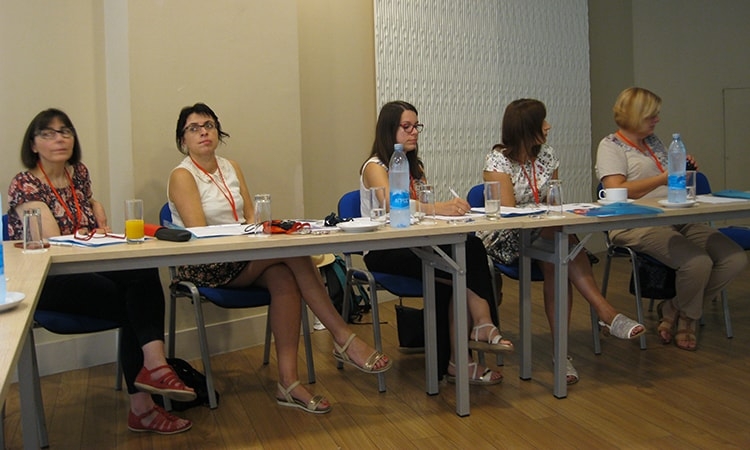Projeto Erasmus+ Meeting Chipre
O segundo encontro do projeto Erasmus+ “I observe, I react!” teve lugar na cidade de Nicósia, no Chipre, de 28 de Setembro a 1 de Outubro de 2017.
O projeto pretende alertar os alunos para que estes estejam atentos a fenómenos como o abuso, o bullying e a agressão. Todo este tipo de violência pode surgir em todas as instituições dos países participantes, independentemente do seu tipo de, da idade dos participantes ou do país onde se encontrem.
Frequentemente, os professores e/ou funcionários das instituições não se apercebem do problema, apesar de ocorrer com frequência. Por outro lado, quase não há formação que leve à consciencialização sobre o abuso, o mobbing, o bullying ou a agressão e quando existe, é geralmente dispersa e de fraca qualidade. É, por isso, necessário enfrentar este fenómeno e reagir contra ele para que aconteça com cada vez menos frequência.
No encontro no Chipre, as instituições participantes apresentaram os sistemas de controlo da violência e as regras estabelecidas em cada caso e deram exemplos de boas práticas. Analisaram e debateram ainda as melhores metodologias para lidar com cenários de sala de aula específicos. A instituição Cipriota convidou representantes de um grupo de trabalho criado pelo Ministério da Educação local que fez uma apresentação sobre os métodos utilizados junto das escolas primárias e secundárias, para combater a violência escolar.
Por fim, planificou-se o próximo encontro em Portugal, bem como as atividades a dinamizar até lá.
Versão em Inglês
The second meeting of the Erasmus + project "I observe, I react!" Took place in the city of Nicosia, Cyprus, from 28 September to 1 October 2017.
The project intends to alert students to be aware of phenomena such as abuse, bullying and aggression. All such violence may arise in all institutions in the participating countries, regardless of their type, the age of the participants or the country in which they are located.
Often, teachers and / or institution employees are unaware of the problem, although it does occur frequently. On the other hand, there is almost no training that leads to awareness of abuse, mobbing, bullying or aggression, and when it exists, it is generally scattered and of poor quality. It is therefore necessary to face this phenomenon and react against it to happen with less and less frequency.
At the meeting in Cyprus, the participating institutions presented the systems of violence control and the rules established in each case and provided examples of good practice. They also discussed and discussed the best methodologies for dealing with specific classroom scenarios. The Cypriot institution invited representatives of a working group set up by the local Ministry of Education which gave a presentation on the methods used in primary and secondary schools to combat school violence.
Finally, the next meeting was planned in Portugal, as well as the activities to be carried out until then.



